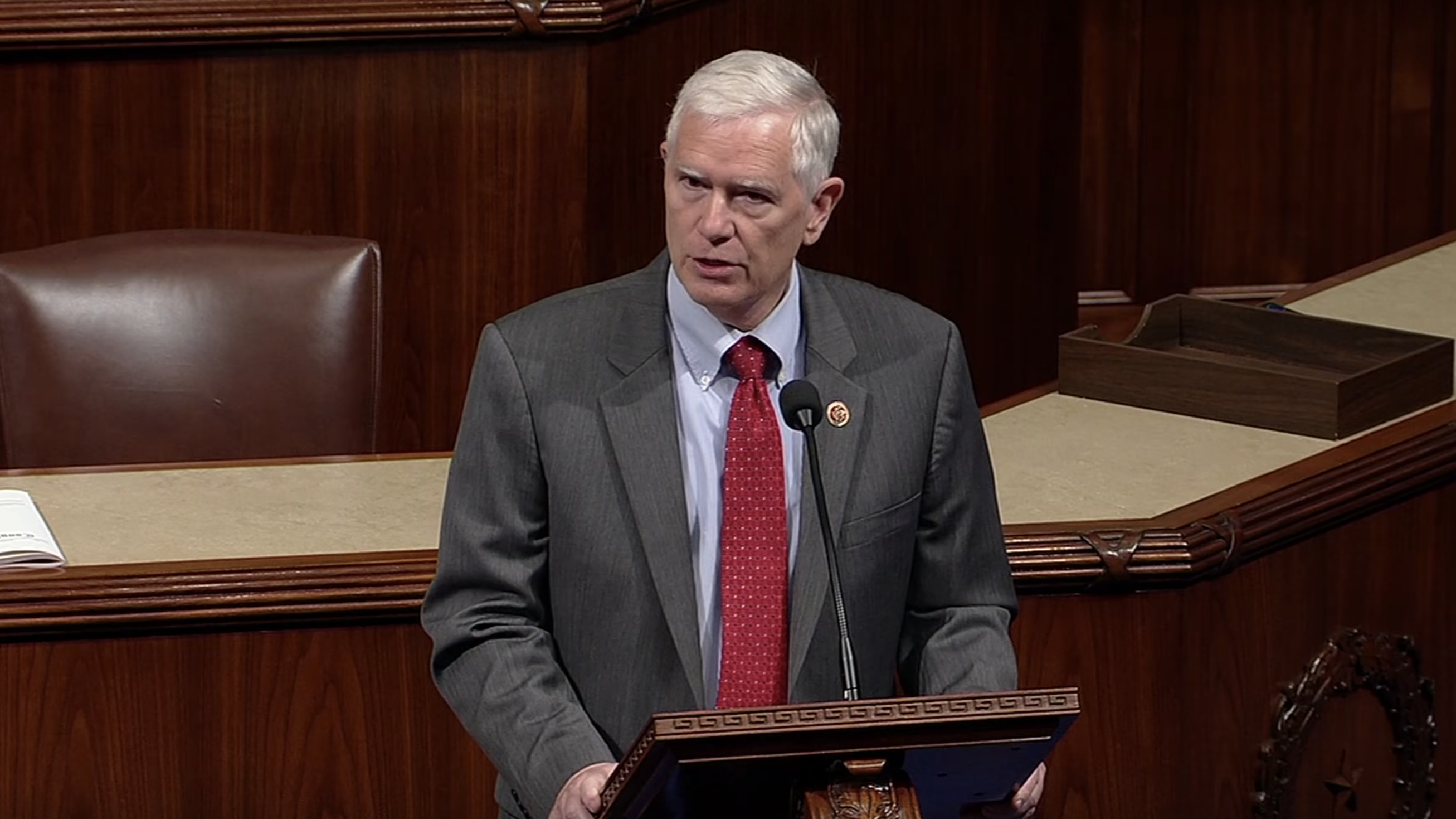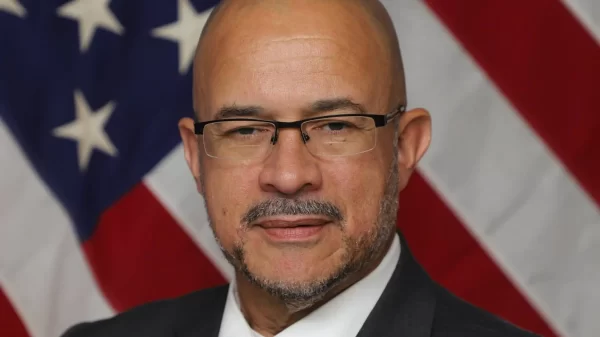Congressman Mo Brooks, R-Huntsville, on Friday, voted no on H.R. 2500, the FY 2020 National Defense Authorization Act on the House floor. Brooks said the bill was “hyper-partisan” and “badly-flawed.”
The FY20 NDAA passed the House 220 to 197. Eight democrats and every republican voted against the bill.
The NDAA has been signed into law 58 consecutive years, and the House of Representatives usually passes the NDAA by an overwhelmingly bipartisan vote. For example, when Republicans were in charge, the House passed a bipartisan FY19 NDAA on a 351 to 66 vote with 131 Democrats voting in favor.
“America faces grave global threats. Iran is increasingly aggressive. China is building up its military,” Congress said. “Russia is working to undermine NATO at every turn. America cannot afford to weaken our military standing. The relative world peace of the past seven decades relies heavily on America maintaining its military strength.”
“Frankly, it’s dangerous for Socialist Democrats to weaken national security at this time,” Brooks continued. “I joined my republican colleagues and voted ‘No’ on the FY20 NDAA because, on the whole, it undermines America’s border security and national security. It’s unfortunate socialist democrats in the House in bad faith refused to support constructive republican floor amendments that were repeatedly and overwhelmingly voted down on party-line votes.”
President Donald Trump has issued a veto threat against the FY20 NDAA.
“While the FY20 NDAA has good parts, ALL republican members of Congress, including myself, concluded that this FY20 NDAA simply puts too many American lives at risk,” Brooks stated. “For starters, socialist democrats — blinded by their hatred for President Trump and crass lust for political power — blatantly used the FY20 NDAA to promote open borders by attacking, thwarting and undermining President Trump’s existing border security powers and policies. To be clear, border security IS national security. The FY20 NDAA blocks President Trump from using existing law and existing funding to build a border wall or otherwise promote border security that protects and saves American lives. In so doing, socialist democrats support the deaths of over 30,000 Americans each year (2,000+ American deaths/year via homicides by illegal aliens on American soil [per Immigration and Customs Enforcement data] plus another 30,000+ American deaths/year from overdoses on poisonous drugs shipped across America’s porous southern border [per Center for Disease Control and Drug Enforcement Agency data]).”
Brooks said more Americans have died as a result of the porous southern border than have been killed in any American military conflict, excepting World War II and the Civil War.
“Socialist democrats insist on promoting their own electoral prospects by enticing and importing illegal aliens — and poisonous drugs they bring — to America,” Brooks added. “Further dangerous weaknesses in the FY20 NDAA include, but are not limited to:
The FY20 NDAA is $17 billion below President Trump’s defense budget request for Fiscal Year 2020. Socialist democrat spending cuts include hypersonic weapons development, ballistic missile defense, and the Ground Based Strategic Deterrent program— all of which are vitally important to America and the Redstone Arsenal defense community.”
Brooks complained that the FY 2020 NDAA moves terrorists from Guantanamo Bay to the U.S. main-land, eliminates funding for the deployment of low-yield nuclear weapons needed to deter attacks by near-peer adversaries and “takes aim at Redstone Arsenal’s Missile Defense Agency by preventing MDA from developing the space-based ballistic missile intercept layer that helps protect America from nuclear missile attacks.”
“A space-based intercept capability is likely the best, and perhaps only, opportunity America has to employ boost-phase missile defense measures for nuclear-tipped intercontinental ballistic missiles, or hypersonic weapons, fired from nations with strong anti-access/area denial systems, including Russia and China,” Brooks explained. “MDA should have the option to pursue a wide range of technologies in missile defense and must have the flexibility to research and develop systems that work, no matter if the platform is air-based, sea-based, land-based or space-based.”
While Brooks opposes the bill as it is written, there are some provisions that the Huntsville congressman supports. These include $38 million is authorized for construction of an Aircraft and Flight Equipment Building on Redstone Arsenal, $40 million for construction of a new air traffic control tower and airport terminal on Kwajalein Atoll — a key component of America’s missile defense assets, a Department of Defense report to Congress on progress made to enable accelerated integration of new missile capabilities into the Army Integrated Air and Missile Defense program, full funding for the development of the Army’s Precision Guidance Kit – Anti-Jam, a Department of Defense briefing to defense committees regarding on board vehicle power technology and a Department of Defense report validated by MDA to the defense committees on the conduct and results of the Lower Tier Air and Missile Defense Sensor sense-off.
Brooks also applauded the bill’s authorization of the Space Corps, popularly known as Space Force, lifting of the prohibition on standing up U.S. Space Command, support for the MDA’s request to develop a space sensor layer to detect and track hypersonic weapon threats and a provision ensuring the Phase 2 National Security Space Launch program remains on schedule.
“It is unfortunate socialist democrats refused to work in a bipartisan manner — as republicans did when we held the House majority — to craft a bill that both republicans and democrats could support,” Brooks concluded. “After voting ‘No’ on the FY20 NDAA in the Armed Services Committee, I held out hope the bill would be improved on the House floor. Unfortunately, the bill was made even worse by radical democrat amendments that were accepted and pro-defense republican amendments that were rejected by the majority party.”
The NDAA now goes to the Senate where major changes are expected.























































